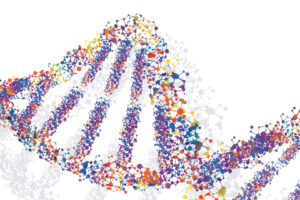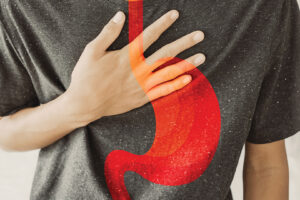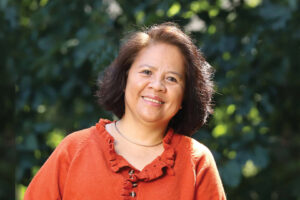When Karen Cohen learned that she’d need to go back to her doctor’s office for extra images after her routine mammogram, she wasn’t alarmed; it happened last year, too. But when an ultrasound suggested breast cancer, she was stunned.
“No one in my family has had breast cancer, so I was caught off guard,” says Karen, 63, a Manalapan resident with three adult children.
After a biopsy confirmed breast cancer, Karen met with a surgeon and opted to have a lumpectomy and some lymph nodes removed to make sure the cancer cells didn’t spread. Following her surgery, she was referred to board-certified radiation oncologist Jae Y. Lee, MD, PhD.
Because Karen’s cancer was in her left breast—and close to her heart—Dr. Lee used an innovative new technology called deep inspiration breath hold (DIBH). DIBH decreases radiation to the heart by using breathing to move it away from the breast and out of the radiation field.
The Details on DIBH
DIBH benefits those whose heart and chest wall are close together because taking a deep breath allows for a separation between the two. The technique also may be appropriate for men with left-sided breast cancer that’s close to the chest wall.
“Limiting radiation exposure to normal tissue around the heart and lungs is becoming an increasingly important goal for breast cancer treatment given the long survival of most patients with breast cancer,” explains Dr. Lee. “DIBH is another tool we can use to provide more targeted treatment.”
Using DIBH, Karen learned how to hold her breath for 20 to 30 seconds, which allowed her lungs to serve as a cushion between her breast and heart. Wearing special goggles to see how long she needed to hold her breath, Karen was able to control the radiation equipment. If she needed to take a break, the beam turned off.
“It was like playing a video game,” Karen says.
She received radiation using the DIBH technique five days a week for four weeks during her lunch break. She experienced soreness similar to a sunburn toward the end of treatment, which is normal.
Karen’s last imaging test found no cancer.
“I’m one of the lucky ones because my cancer was caught early,” says Karen, who finished treatment in time to enjoy her daughter’s wedding with her family. “I never felt a lump. Yearly mammograms are so important.”
Learn more about cancer services at CentraState at centrastatecancercenter.com or 855-411-CANCER (855-411-2262).





